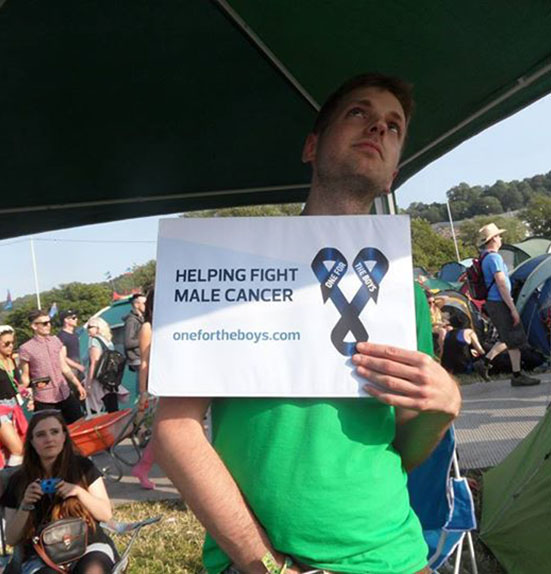Support & Opinions

A cancer diagnosis can feel like the world is ending, but it's important to remember you're not alone. A strong support system can help make a big difference.

Living with Cancer
Cancer can leave a trail of destruction in its wake. It’s impact can be felt by everyone around it, not just the one who got the bad news from the doctor.
When someone close to you finds out they’ve been hit by Cancer, it can feel like complete devastation, and you may not know where to turn or how to help them without feeling like you’re patronising them or making them feel worse.
Living with Cancer blows. But with the right support, and knowing how to keep yourself together, you’ll be better equipped to help your loved one pull through too.
Find YOUR support system
When someone you care about is diagnosed with Cancer, it's not just their life that will change - yours will too. Whether it's family, friends or a support group, you'll need someone to talk to as well to help you through this difficult time.
Do some research.
Yes it’s a cringe-inducing cliché, but knowledge really is power. Read up so you can know what to expect and how to help your loved one. Just watch out when it comes to self-diagnosing on the internet though - leave it to the professionals to identify what any problems are.
Plan for the future.
It may be hard to plan ahead, but having fun things to look forward to when your loved one is feeling up to it can help both of you and give them a needed boost to keep on fighting.
Accept a helping hand.
Other people will often want to help but not know how; don't shut them out - tell them what you need and let them help.
Look after yourself.
For you to care for someone else, you need to look after yourself too. Make sure you're taking the time to eat and sleep properly so you can stay healthy.
Know that you can't do it all.
No one expects you to be able to do everything, not even your loved one. It's okay to not be able to handle everything on your own, admitting this to yourself will let you to find help in others.
Second opinions
When you spot something unusual going on with your body, you should always pay your doctor a visit to get to the root of the problem. The sooner you find out what the problem is, the sooner they can get it sorted.
But doctors are human, they can sometimes miss things. Don’t let this put you off from getting something checked. But if you do have a question about their diagnosis, don’t feel like you can’t speak up or get a second opinion; especially if you don’t see the problem improving after a bit of time.
There’s nothing wrong with asking for a second opinion, and there are plenty of reasons to do so… Here are just a few of them:
- If you’re worried your symptoms haven’t been diagnosed correctly
- You have more questions about your diagnosis, or don’t understand something
- You’re unhappy about the recommended treatment
- You don’t feel like you can talk openly with your current doctor
Don’t worry about offending your doctor by getting a second opinion; it’s okay to think about yourself, and they’ll understand you might need extra reassurance on your diagnosis.
Before going in to see someone else, think about the questions you want to ask them (write them down if it helps), and make sure you let them know why you’re after a second opinion.
How to get a second opinion
You can ask your GP to refer you to another GP or specialist, or you can see a private doctor (though obviously you’ll have to pay for that).
If you have any problems getting referred to see another doctor or specialist, you can get in touch with the Patient Advice and Liaison Service (PALS) at your local hospital. Or you can get speak to your local Citizens Advice Bureau (CAB).
